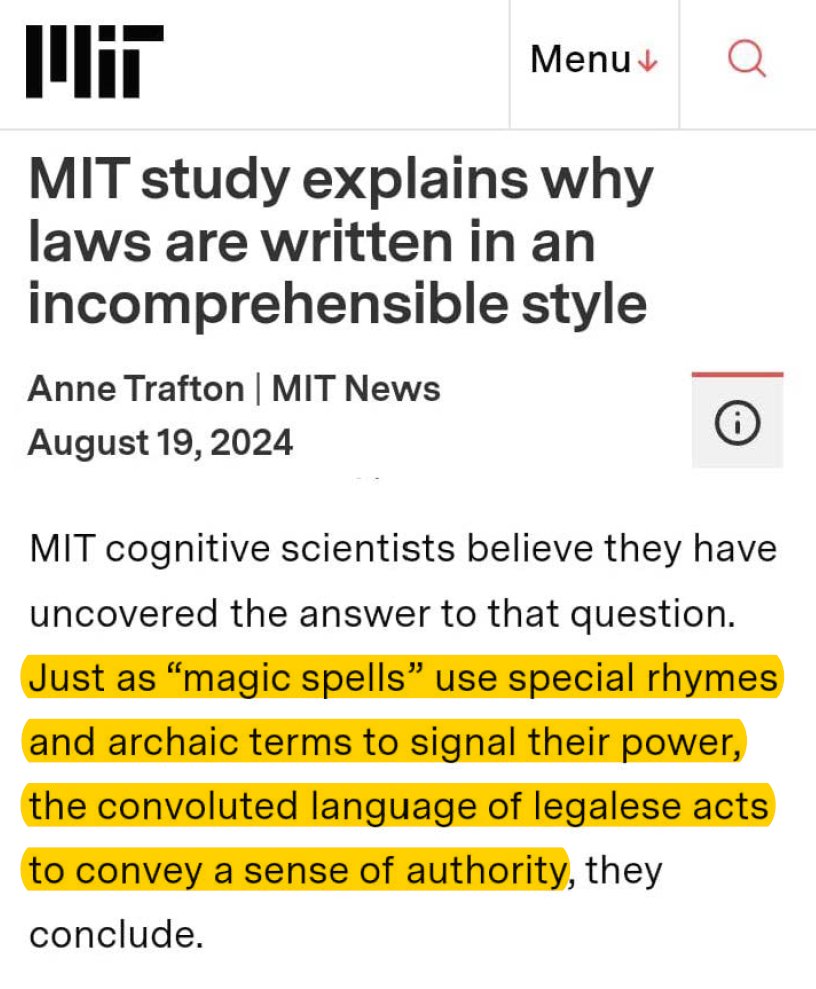
Eric Martínez
@ericgrimani
Fellow @UChicagoLaw | Ph.D. @MITbrainandcog | J.D. @Harvard_Law
Law, language, cognition, AI
ID: 1270062849977651205
https://papers.ssrn.com/sol3/cf_dev/AbsByAuth.cfm?per_id=4844618 08-06-2020 18:40:41
167 Tweet
581 Followers
387 Following

🚨New preprint!🚨 My first first-author project with Cameron Rouse Turner Natalia Vélez (natvelali.bsky.social @ 🦋) Griffiths Computational Cognitive Science Lab How do people evaluate idle collaborators who don’t help out during group tasks? TL;DR: Sometimes it’s okay not to help with the dishes 🧵👇 Link: tinyurl.com/32wfwkxp




New study: nonlawyer lawmakers "wrote in a more convoluted manner" perhaps to sound more "authoritative". So we maybe we can simplify laws without sacrificing content. PNASNews article by UChicago Law School's Eric Martínez, and profs at University of Melbourne & Massachusetts Institute of Technology (MIT) pnas.org/doi/abs/10.107…

Now out in Cognition! ➰"Ambivalence by Design: A Computational Account of Loopholes"➰ by Qian, Bridgers, Parece, Maya Taliaferro, and me bit.ly/cognitionLooph…




Excited to have been named one of MIT Technology Review's 35 under 35! I am happy that, these days, language & human cognition are topics that the world cares deeply about (thanks to recent developments in AI). Not only are these topics impactful, they are also fun to study!


Ted Gibson, Language Lab MIT and I are so pleased about this: mitpress.mit.edu/cognitive-scie… Thanks to Harvard Library MIT Libraries The MIT Press @mitpress.bsky.social for making this happen!




Congrats to the 4 MIT students who have been named 2025 Rhodes Scholars - esp David Oluigbo in Ev (like in 'evidence', not Eve) Fedorenko 🇺🇦 lab, who plans to apply AI to complex medical problems and systemic healthcare challenges. 🙌 mcgovern.mit.edu/2024/11/16/fou…


New paper with Alexander Fung, Pramod RT/ಪ್ರಮೋದ್ ರಾ ತಾ , Jessica Chomik , Nancy Kanwisher @[email protected], Ev (like in 'evidence', not Eve) Fedorenko 🇺🇦 on the representations that underlie our intuitive physical reasoning about the world. Thread 🧵about our new preprint 📄✨linked here: tinyurl.com/intphyslang 1/10









